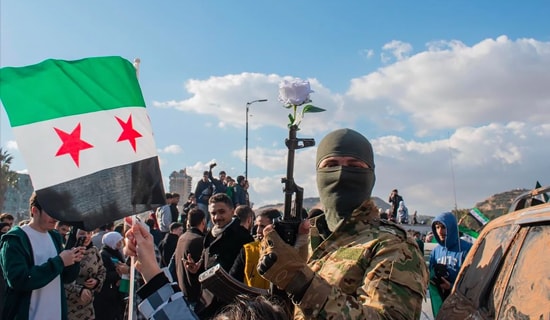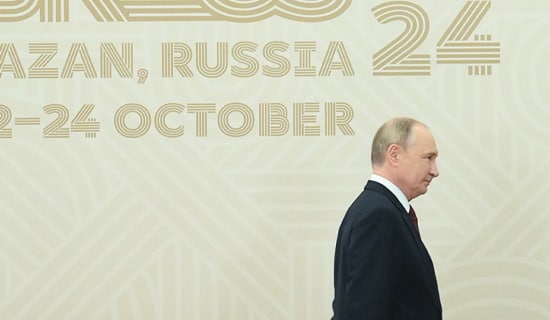In response to the recent spate of terror attacks in the West Bank and the marking of the anniversary of the First Intifada, which began in 1987, columnists in the Jordanian Al-Dustour daily praised the armed resistance of the Palestinian people. They stated that this resistance has broken through the Palestinian barrier of fear, terrified the Israelis, and restored the desired balance of fear, and is the Palestinians' only hope of salvation and will ultimately drive away the occupation and the settlers. One columnist even celebrated the fact that so many young Palestinians are willing to die as martyrs for the homeland.
The following are excerpts from the columns:
Al-Dustour logo
Jordanian Journalist: The Terror Attacks' Planning Was Professional And Intelligent; The Palestinian Fighters Are Restoring The Required Balance Of Fear
Following a series of terror attacks in the West Bank, Kamal Zakarna, in his December 12, 2018 column in Al-Dustour, praised the professionalism and intelligence of the recent terror attacks in the West Bank. Calling them an unexpected slap in the face to the Israeli enemy, he added that this enemy responds with blundering, irrelevant measures aimed only at placating the settlers. He asserted that while the attackers had managed to upset the balance of fear, they must now continue to strengthen their deterrence so as to empty the settlements "of the wild beasts that inhabit them" and derail the Deal of the Century. He wrote:
"The new military escalation in the occupied West Bank is aimed primarily against the settlers, as is clearly evident from the military operations and their targets. [These operations] are professionally and intelligently focused and planned, [based on a model of] attack, withdraw, and disappear. The fighters [initially] operated on foot, and then advanced to cars and finally to motorcycles. The Israeli enemy is likely to be surprised by a new slap in the face that will compel it to reinforce its occupying troops in order to look for needles in haystacks throughout occupied Palestine.
"The raids and arrests that the occupation's military, police, and security forces are carrying out night and day in the Palestinian cities, villages, and refugee camps are primarily aimed at raising the flagging morale of the settlers and showing them that the occupation is not losing control. [These measures] are also meant as a show of presence for the Palestinians [and to prove to them] that the long arm of the occupation can reach them at any time. But all these measures are useless and meaningless as long as the [Palestinian] operatives intend to continue to target the usurping settlers. [Israeli Prime Minister Benjamin] Netanyahu must prepare for further slaps in the face.
"An examination of the events of the last few days in occupied Palestine reveals that their targets were very carefully selected. They have proven that the occupation cannot defend the settlers and that [its soldiers] cannot even defend themselves, no matter how they barricade and arm themselves. The Palestinian fighters have successfully grabbed the stick of the balance of fear, albeit at its very tip, and powerfully raise it aloft... They sparked fear in the hearts of the settlers and concern in the hearts of the occupation soldiers and Zionist security forces. They kept them preoccupied and forced them to be in a perpetual state of alert while gaining no achievements on the ground.
"There is no choice but to restore the heretofore absent balance of fear, in order to empty the settlements, completely or partially, of the wild beasts who inhabit them..."[1]
Jordanian Columnist: The Young Palestinians Have Broken The Barrier Of Fear – And Yearn For Martyrdom
In his December 16, 2018 column in Al-Dustour, which marked the anniversary of the First Intifada, Rashid Hassan noted the young ages of the many Palestinians who are willing to sacrifice themselves, and the phenomenon of Palestinian mothers encouraging them to become martyrs. Extolling the vital role of Palestinian women in the First Intifada, he said that the daring and vigor displayed by the Palestinians in recent events leave no room for doubt about their ultimate victory. He wrote: "The most important feature of the intifada of the stones [i.e. the First Intifada] and the intifadas that followed it is the breaking of the barrier of fear. With its epic steadfastness and its insistence on resistance as the only way to survive and live in dignity, the Palestinian people managed to break the barrier of fear...
"In this context, we identify two main phenomena: One is the [Palestinian] teens' and young people's eagerness for martyrdom. According to Palestinian statistics, most of the martyrs are young people, and some 40% are under 16. This striking phenomenon was shown in photos in which children stand in the path of the enemy tanks, which became one of the icons of the uprising...
"These children have sent an important and unprecedented message to the enemy – namely, that the Palestinian people have broken the barrier of fear and are willing to fight for another 100 years, and that the enemy's terror will only increase its eagerness for self-sacrifice. The rivers of blood no longer frighten [the Palestinians]; on the contrary, they have turned the funerals of the martyrs into nuptials[2] and songs of victory, valor, and glory. [The teens and young people] now compete for this fundamental and noble privilege, which is the greatest honor of all – particularly since the families of martyrs have begun to gain high social status and are honored by the entire population, with people falling over each other to show their respect for them and befriend them.
"The second phenomenon we are witnessing is that of mothers encouraging their sons to attain martyrdom, to face the enemy and confront him with courage. The son is the fruit of his mother's womb, the apple of her eye, and her most precious possession – but the homeland is more precious still. [The homeland] is everlasting and is the honor, and is supreme, while the sons are the fence that protects the homeland, the strong arm that wards off danger, and the long spear thrust into the necks of the enemies. The Palestinian women, who led the Intifada of the Stones became one of the icons of the uprising, provided the generals of the [Intifada of the] Stones with live ammunition and bricks of fired clay. The glorious Palestinian women actively contributed to the breaking of the barrier of fear, and had the honor of planting the genes of heroism, courage and vigor in the blood of these heroic children.
"This Palestinian condition is rooted in the history of this great [Islamic] nation, and is the continuation of an ancient and glorious tradition. Suffice it to mention the great Arab poet Al-Khansa',[3] who, upon learning that her four sons had died in the Battle of Qadisiyah [in 636], said: 'Praise Allah for honoring me with their martyrdom.' The Palestinian woman has walked, and still walks, the path of self-sacrifice and noble glory. Brevity does not allow me to list more of these fighters…
"In short, the Palestinian people have broken the barrier of fear. That is the secret of their ongoing and unceasing uprisings and that is why their sons are eager for sacrifice and martyrdom, now that resistance, valor and vigor have become part of their genetic makeup. This is what gives us confidence that they are sure to triumph, and that the Zionists are sure to leave, sooner or later."[4]
[1] Al-Dustour (Jordan), December 12, 2018.
[2] The belief that in Paradise a martyr will marry "black-eyed" virgins explains somewhat family members' expressions of joy when they receive news of a martyr's death, as well as why a martyr's funeral may also be described as a wedding, and why people visit the home to congratulate the family for the martyr's death, not to console them. See also MEMRI Inquiry and Analysis No. 61, The Joy of the Mothers of Palestinian 'Martyrs', June 27, 2001.
[3] Al-Khansa' bint 'Amr was an Arab poet from the early days of Islam who is considered the "Mother of the Martyrs." She did not mourn the deaths of four of her children in the Battle of Qadisiyah, but praised Allah "who honored me with their martyrdom."
[4] Al-Dustour (Jordan), December 16, 2018.





